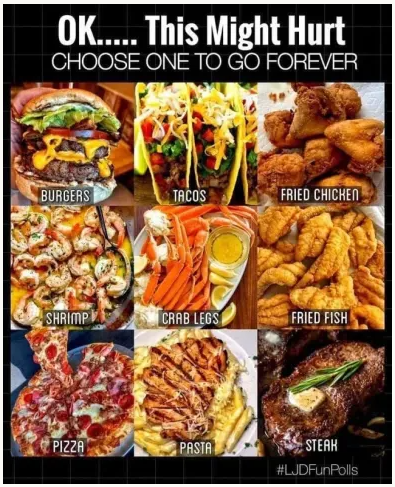Today is the three month anniversary of the day that I was officially let go from my prior employer. Not that I’m holding a party or anything.

In an odd quirk, I recently realized that in all of the writing that I’ve done over the past three months, I have written very little about one particular topic—product marketing. Since I have spent most of the last nine years marketing products, this seemed odd at first. But as I note in the final post excerpt below, I was often writing about product marketing without explicitly mentioning the p-word. (Content marketing and product marketing are NOT necessarily completely different, despite what the “experts” say.)
I’ve collected some of my recent product marketing writing from the Bredemarket blog, both some items that I wrote some time ago, and some more recent items that I wrote to rectify this…um…content gap.
On marketing intangible products (July 2021)
This post discussed the changes over the years in product marketing collateral (and other collateral). Excerpt:
In the old days of product marketing collateral, you could get into big discussions about the quality, weight, and finish of the paper that you used to print your collateral. Today, those discussions are for the most part irrelevant, since the recipients print the collateral on their own printers, if they print the collateral at all.
From https://bredemarket.com/2021/07/08/on-marketing-intangible-products/
When product marketers don’t market, part of How “Omni” is your Omnichannel? (March 2022)
For those who know me personally, note that I wrote this in March 2022, not in September 2022, when a Developer Advocate DID join our Product Marketing team at Incode Technologies. But I guess I was thinking about the issue even in March.
Excerpt from the post:
I recently held a discussion with a product marketer which got me thinking. We were talking about the things product marketers do, which include content creation (case studies/testimonials, white papers, social media content, and the like) and other product-related tasks such as competitive analysis of other products.
But then the product marketer mentioned something else.
What about having the product marketer author product technical documentation, such as user guides?…
Now technical documentation is (usually) not the place for overt marketing messaging, but at the same time technical documentation authorship benefits the product marketer and the company by immersing the product marketer into the details of the product, thus increasing the marketer’s product understanding.
I’ll grant you need a different writing style when writing technical documentation; after all, there are no earthshaking benefits from clicking on the “Save As” button.
From https://bredemarket.com/2022/03/15/how-omni-is-your-omnichannel/
How Remote Work Preserves Your Brain (July 2023)
One of the benefits of a remote staff is that you can gather the best and the brightest from anywhere, and you’re not limiting your choices to people who listen to the same radio morning DJ as you do. The post gives an example from my own experience.
Second, (working from home) provides the best talent to your employer. Why? Because it can hire you. I just spent over a year working for a company headquartered in San Francisco, and I didn’t have to move to San Francisco to do it. In fact, when my product marketing team reached its apex, we had two people in Southern California, one in England, and one in Sweden. None of us had to move to San Francisco to work there, and my company was not restricted to hiring people who could get to San Francisco every day.
From https://bredemarket.com/2023/07/25/how-remote-work-preserves-your-brain/
Quick Thoughts on Product Positioning (August 2023)
I got the idea for this post while reading a job description that mentioned “product positioning” as one of the key duties for the senior product marketing manager they wanted to hire. (Sadly, the company chose not to hire me. Its loss.)
The post that I ended up writing repeats many of the themes I’ve been emphasizing over the past few years, including Simon Sinek’s Golden Circle (in which “why” is at the center) and the need to discriminate your product rather than becoming a “me too” clone.
If your product suddenly disappeared from the world, would your target audience (or, in marketing-speak, personas) care?
Would your target audience be just as happy with the competitive offerings, or would the target audience lose out if your product’s distinctive benefits were suddenly no longer available?
From https://bredemarket.com/2023/08/28/quick-thoughts-on-product-positioning/

And don’t get me started on non-marketers who complain that your marketing content is different than the marketing content of your competitors. That’s the point.
The NON difference between product marketing and content marketing, part of The 22 (or more) Types of Content that Product Marketers Create (August 2023)
The title of the “NON difference” section of this blog post summarizes the…um…content.
If you consult with the experts, they will tell you that there is a distinct division between product marketing and content marketing, and that they are two entirely separate disciplines….
There certainly is a difference—if you work in a firm that enforces strict definitions and separation between the two.
Some firms (especially startups) don’t have the luxury to enforce such definitions. They don’t have separate teams to create awareness content, consideration content, and conversion content. They have one team (or perhaps one person) to create all that content….
Why did the product marketers (in a particular startup) end up as content marketers? It turns out that it makes sense—after all, people who write about your product in the lower funnel stages can also write about your product in the upper funnel stages, and also can certainly write about OTHER things, such as company descriptions, speaker submissions, and speaker biographies.
From https://bredemarket.com/2023/08/28/the-22-or-more-types-of-content-that-product-marketers-create/

Future thoughts
It’s in my self-interest (since I am, in effect, a product) to share more of my thoughts on product marketing, and I will try to do so over the coming months.
Stay tuned.